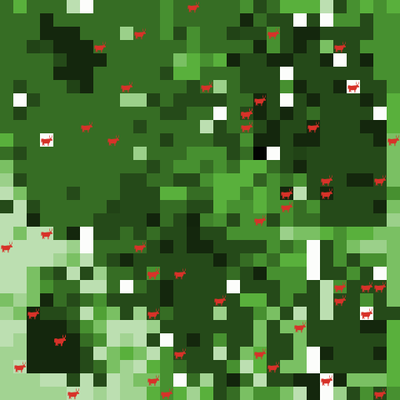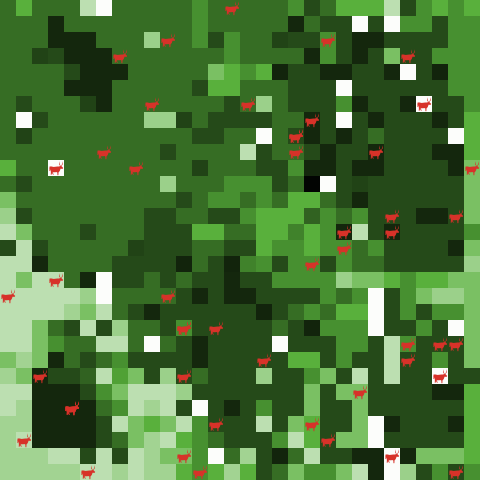Ideal Free Distribution of Mobile Pastoralists in the Logone Floodplain, Cameroon (1.3.0)
The purpose of the model is to examine whether and how mobile pastoralists are able to achieve an Ideal Free Distribution (IFD). Our hypothesis is that an ideal free distribution will emerge when camps with complete information, freedom and ability to move, and independent decision-making capabilities, have open access to depletable common-pool resources that are highly variable is space and time. In the model we compare three simple movement rules and examine how successful they are in achieving an IFD.
Version 1 of the model was used for the simulations that we published in the following paper in Ecological Modelling: Mark Moritz, Ian M. Hamilton, Andrew J. Yoak, Paul Scholte, Jeff Cronley, Paul Maddock, Hongyang Pi. 2015. Simple Movement Rules result in Ideal Free Distribution of Mobile Pastoralists. Ecological Modelling. 305:54-63. 10.1016/j.ecolmodel.2015.03.010.

Release Notes
Associated Publications
This release is out-of-date. The latest version is
1.4.0
Ideal Free Distribution of Mobile Pastoralists in the Logone Floodplain, Cameroon 1.3.0
Submitted by
Mark Moritz
Published Apr 09, 2015
Last modified Feb 23, 2018
The purpose of the model is to examine whether and how mobile pastoralists are able to achieve an Ideal Free Distribution (IFD). Our hypothesis is that an ideal free distribution will emerge when camps with complete information, freedom and ability to move, and independent decision-making capabilities, have open access to depletable common-pool resources that are highly variable is space and time. In the model we compare three simple movement rules and examine how successful they are in achieving an IFD.
Version 1 of the model was used for the simulations that we published in the following paper in Ecological Modelling: Mark Moritz, Ian M. Hamilton, Andrew J. Yoak, Paul Scholte, Jeff Cronley, Paul Maddock, Hongyang Pi. 2015. Simple Movement Rules result in Ideal Free Distribution of Mobile Pastoralists. Ecological Modelling. 305:54-63. 10.1016/j.ecolmodel.2015.03.010.

